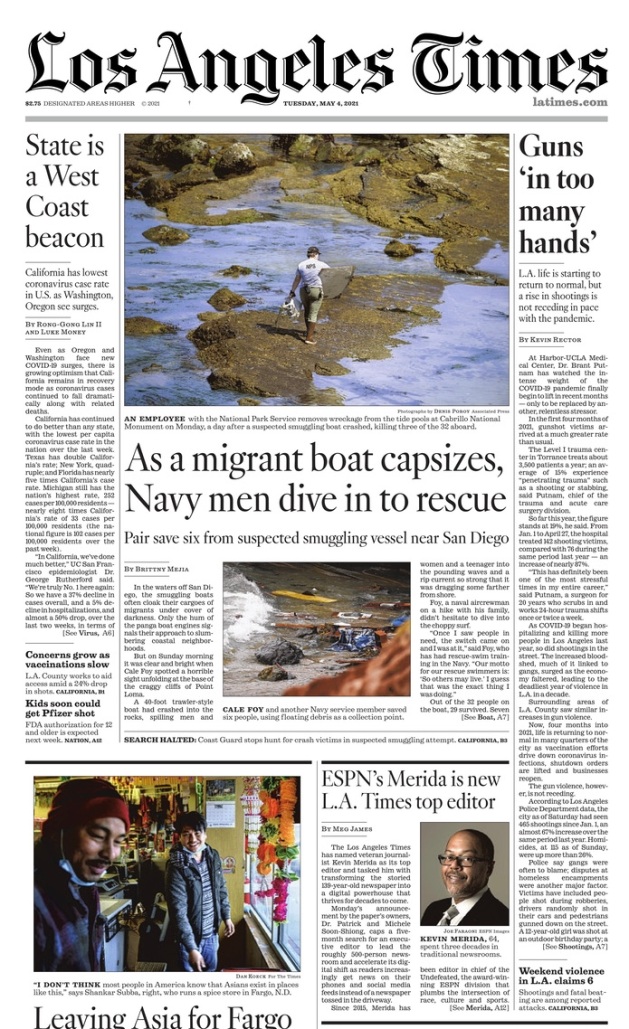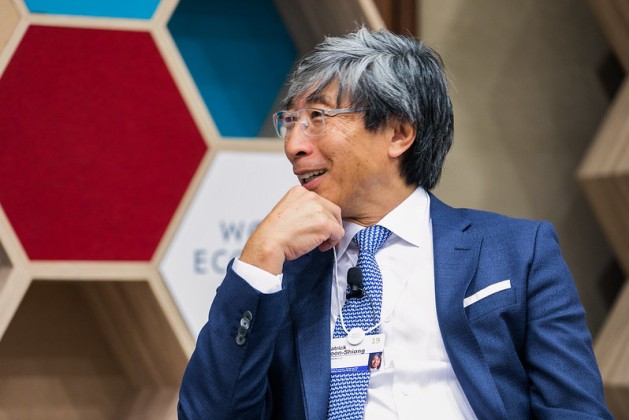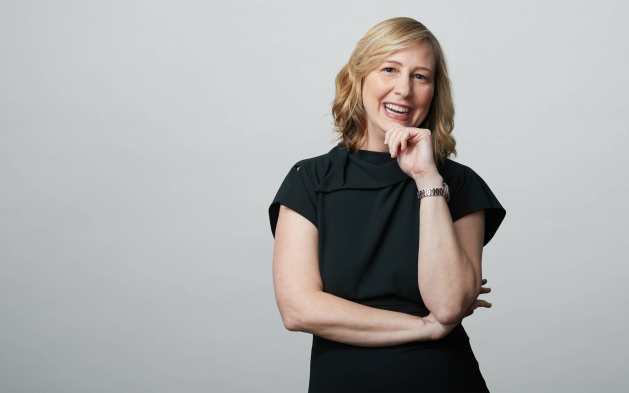In the latest development in protracted labor strife at The Boston Globe, the Boston Newspaper Guild this morning issued a statement expressing solidarity with two other unions that represent Globe employees, the Teamsters and the International Association of Machinists. The Guild, which represents the newsroom, the advertising staff and several other departments, also raised the specter of a possible strike.
“All employees at The Boston Globe deserve respect,” the three unions said in a letter to management. “Yet, union members representing Globe staff have experienced management’s hostile anti-worker posture during the course of each union’s recent and protracted contract negotiations. We are coming together to say enough is enough.”
In response, Claudia Henderson, chief human resources officer for Boston Globe Media Partners, said in an email: “The Boston Globe has been committed to negotiating with all of our labor partners to provide workplace benefits and protections while ensuring our ability to continue our growth and investment in all of our newsrooms.”
Henderson’s full statement appears below. But first, the Guild’s statement:
Workforce unrest spreads at Boston Globe
Three different unions denounce “hostile” and “harmful” tactics by executives at New England’s largest newspaper
BOSTON, MA – Workers from three different labor organizations at New England’s largest newspaper are joining in chorus to decry working conditions and “harmful tactics” by John Henry and Linda Pizzuti Henry’s executive team. Together, the three groups represent hundreds of workers in nearly every department throughout The Boston Globe’s operations, including truck drivers, reporters, photographers and more.
After drawing heat for engaging former President Donald J. Trump campaign’s law firm of choice to handle labor negotiations, which prompted a “scathing rebuke” from Globe journalists about ethical concerns presented by the anti-worker firm’s hiring, Henry and Pizzuti Henry now face increasing criticism from beyond just the Guild union that represents newsroom staff.
Leaders from the Teamsters union and the International Association of Machinists have now joined with members in the Boston Newspaper Guild in calling the treatment of workers “dismissive” and “disrespectful” in a joint letter sent to top Globe brass on Thursday, including Henry and Pizzuti Henry.
“By continuing to engage in actions that foment strife within the company, you run the risk of rupturing that trust and of continuing to lose the talented workers who are the foundation of the company’s recent and future success,” said the letter to Boston Globe executives, which was signed by Stephen Sullivan, President of GCC/Teamsters Local 3 Boston; Michael Vartabedian, Assistant Directing Business Representative of the International Association of Machinists, District 15; and Scott Steeves, President of the Boston Newspaper Guild (BNG-TNG/CWA Local 31245).
In a recent internal poll, an overwhelming super-majority of members from the largest of those units, the Boston Newspaper Guild, said they would support a strike authorization vote if one were called by their bargaining committee.
“All employees at The Boston Globe deserve respect. Yet, union members representing Globe staff have experienced management’s hostile anti-worker posture during the course of each union’s recent and protracted contract negotiations,” read the letter. “We are coming together to say enough is enough.”
The communication marks a turning point as it represents the first coordinated action by the three different unions, all citing similar concerns with the approach being taken by Henry and Pizzuti Henry. Henry and Pizzuti Henry also own the Boston Red Sox and the Liverpool Football Club of the English Premier League.
In the spring, members of the Boston Newspaper Guild recorded a key victory when journalists at the Globe-operated health news website STAT joined the Guild. Previously, Pizzuti Henry’s announcement as the next CEO of the publication was clouded by the labor strife that has overtaken the Globe.
Workers at the Globe held out some hope that Pizzuti Henry would move on from the hostile, anti-worker policies being pushed before her tenure, but Globe employees say that the new CEO has failed to reconcile the differences causing an increasing schism at the publication.
Now, with multiple unions coalescing in the form of today’s letter and with talk of a potential strike vote, Pizzuti Henry and her executives face a mounting crisis of confidence at the Globe, even as management touts their increasing digital subscriber rates.
The members of all three unions have each been attempting to negotiate fair contracts at the Globe for more than two years. The Globe has generally failed to disclose its financial ties to Jones Day when running stories related to the controversial law firm and its suits, including those related to the 2020 election.
The executives named in the letter to Globe executives included:
Linda P. Henry, Chief Executive Officer, Boston Globe
John W. Henry, Owner, Boston Globe
Arch Carpenter, Senior Vice President of Print Operations
Claudia Henderson, Chief Human Resources Officer, Boston Globe Media Partners
Dan Krockmalnic, General Counsel, Boston Globe Media Partners
David Carillo, Chief Financial Officer, The Henry Organization
David Dahl, Deputy Managing Editor, Boston Globe
Jason Tuohey, Managing Editor – Digital, Boston Globe
Rich Ford, Director, Total Rewards
Trish Dunn, Partner, Jones Day
And, finally, Henderson’s statement:
The Boston Globe has been committed to negotiating with all of our labor partners to provide workplace benefits and protections while ensuring our ability to continue our growth and investment in all of our newsrooms. We are incredibly proud of the way this entire organization has continuously served our community. Throughout the time that we have been bargaining, we have sought to create a more evolved ethics policy, and have created policies to allow for additional benefits during the pandemic, including $2,000 for employees with young children, $500 for home office set ups, care.com memberships, and additional days off for staff to use in whatever ways work best for employees. We look forward to getting to resolution on all contracts and will always value the partnerships.








